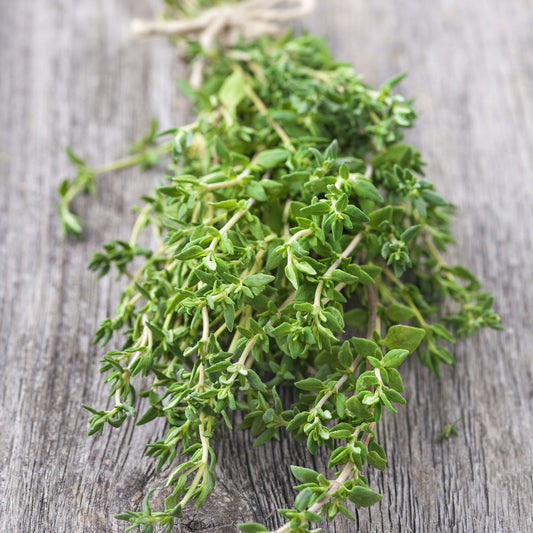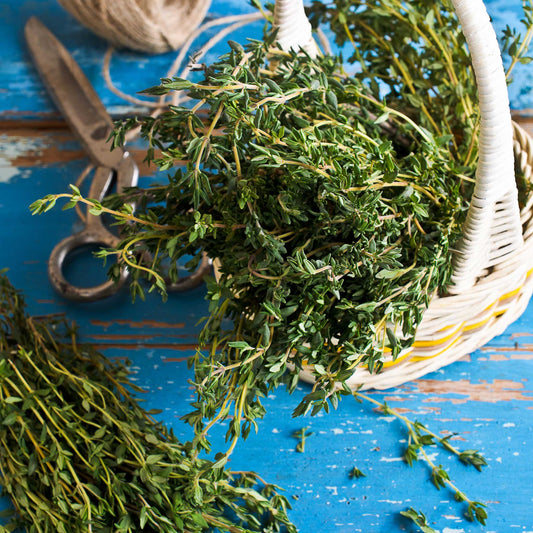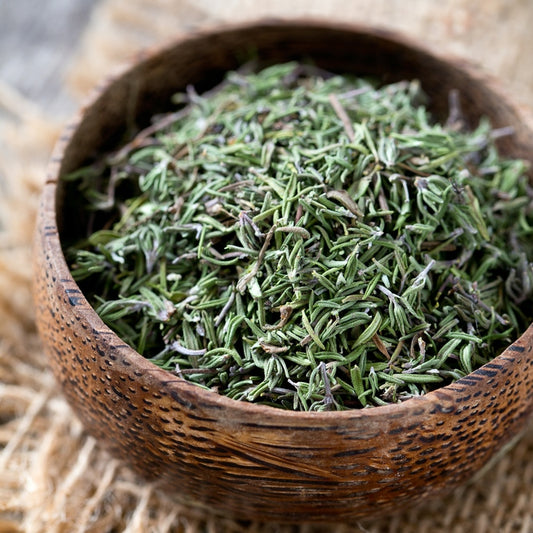-
main-collection-product-grid

Thyme Seeds
Most cherished of all herbs with its bold floral and earthy flavorThyme Seeds
Most cherished of all herbs with its bold floral and earthy flavorRegular price As Low As $5.49Regular priceUnit price per -
main-collection-product-grid

Thyme Seeds (Organic)
Present in most herb gardens, an excellent culinary and aromatic herbSaleThyme Seeds (Organic)
Present in most herb gardens, an excellent culinary and aromatic herbRegular price As Low As $8.99Regular priceUnit price per$73.99Sale price As Low As $8.99Sale -
main-collection-product-grid

Thyme Seeds - Summer
Spicy, pungent flavor; used fresh or driedThyme Seeds - Summer
Spicy, pungent flavor; used fresh or driedRegular price As Low As $6.99Regular priceUnit price per
Planting the best heirloom thyme seeds
- A small and dainty herb
- Thrives in bright, sunny growing areas
- Great flavor for an array of different dishes
- Also used for fragrance, ornamental, and medicinal uses
Plant the best heirloom thyme in your herb garden
Heirloom thyme is a small plant with a big impact, and it's a great addition to any garden! Thyme has been used as an antibiotic, a preservative, an incense, and an essential ingredient in some of the world's greatest and most famous food for over 4,000 years. It was employed in the embalming process in ancient Egypt. It was thought to ward off scorpions and guard against poisoning in Rome. It was packed into plague masks, and its smoke was used to fight off disease. Fairies were connected with this little evergreen shrub and its pollinator-attracting blooms throughout the Victorian era. Compounds derived from thyme are being employed in medical disinfectants and fungicides in the present age.
Thyme is equally beneficial in the kitchen and can be found in French and Italian cuisine. It goes well with roast vegetables (especially potatoes) and most meats, and it also goes well in soups and stews.
Tips for planting heirloom thyme
Combine heirloom thyme with other sun-loving, drought-tolerant herbs. When starting from seed, start indoors and be patient, as germination could take quite some time. Two to three weeks before the final frost, transplant well-established seedlings to a garden bed, herb spiral, or rock garden. Heirloom thyme may be used as a ground cover around other plants or between pavement stones if you don't want to consume it. Only water the plant as needed, and mulch the roots before the first frost in the fall.
How to harvest and enjoy heirloom thyme
To avoid thyme from becoming leggy or blossoming too early, harvest the top few inches of growth on a regular basis, but always leave at least a third of the plant. Divide the plant every three to four years to protect it from becoming too woody. If the plant yields more than you can use, remember that thyme holds its flavor better when dried than many other herbs, and you can easily hang it to dry or remove the leaves and spread them out on a baking sheet.
Great companion plants for Heirloom Thyme
Heirloom thyme combines nicely with tomatoes in the garden, reducing hornworm infestation and increasing the flavor. Plant it near eggplant to keep garden insects away. For a fragrant, pollinator-friendly combo, grow rosemary, thyme, and lavender in a bed or herb spiral.
For more information about planting, growing, and caring for heirloom thyme seed, see our Thyme Seeds Planting Guide.


